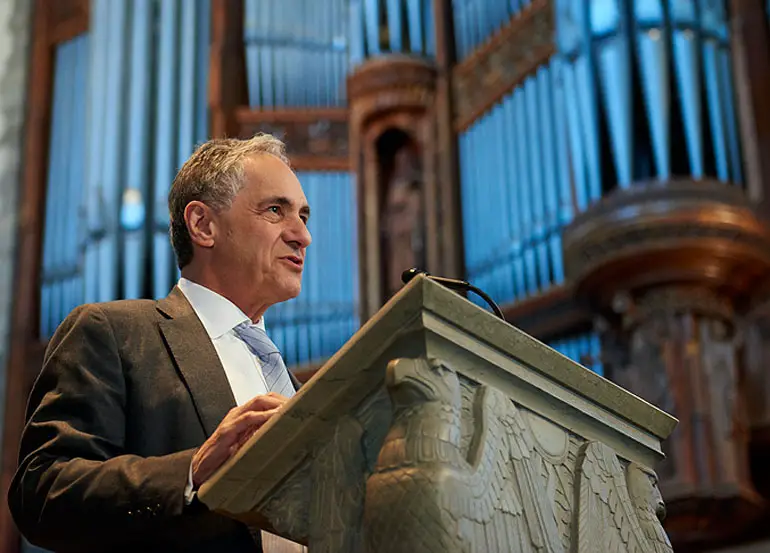University of Chicago president Robert J. Zimmer has openly opposed President Donald Trump’s proposition to issue an executive order forcing universities to guarantee free speech on their campuses.
In a letter to campus community members, Zimmer said that the proposed action by the executive branch could set a very “problematic” precedent.
“The question of federal intervention in this arena arises again today, not with Congress, but with the Executive Branch,” Zimmer wrote. “I believe that any action by the Executive Branch that interferes with the ability of higher education institutions to address this problem themselves is misguided.”
Zimmer’s comments came days after Trump gave a speech at the Conservative Political Action Conference in National Harbor, Maryland where he promised an executive order and threatened to withhold federal aid for colleges and universities if they don’t protect the viewpoints of students from all political backgrounds.
Zimmer said he believes the executive action could make things worse for colleges by restricting the environments in which intellectual discourse and challenge can occur.
“This opens the door to any number of troubling policies over time that the Federal government, whatever the political party involved, might adopt on such matters,” he wrote.
“It would reproduce in Washington exactly the type of on-campus “speech committee” that would be a natural and dangerous consequence of the position taken by many advocating for the limitation of discourse on campuses.”
Trump’s proposal has received criticism from others as well who fear that it could undermine the work of free speech activists and attract more intervention from the federal government.
“Such an order could also undermine faculty free speech activists who have worked hard over the years to restore free speech and liberty on campus,” Donald Downs, the Alexander Meiklejohn professor of political science emeritus at UW-Madison, said in a statement.
“Such power undermines institutional responsibility and could readily include chilling the voices of those whose politics differ from whatever group or party controls the government at the time,” Downs added.



